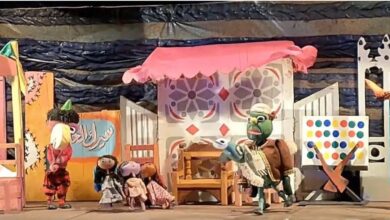Throughout these last two weeks of Ramadan, the travel section will look at Ramadan in a number of countries around the world. This is the first in our little mini-series on the different experiences of Ramadan.
Ramadan is a month of celebrations in every Muslim country in the world. Yet one notices differences in cultural and religious practices during the holy month from one region to another.
Right across the Mediterranean, in Turkey, Ramadan is celebrated as a month of faith and cultural effervescence. Yet, for a sizeable part of the population fasting is not the essence of the celebration.
Turkey is considered a Muslim country because over 95 percent of its citizens subscribe to Islam, but it is a secular state. In the Turkish frame, the concept of secularism – which is a legacy of Mustafa Kemal Atatürk’s reforms in the 1930s – means that the constitution does not recognize nor promote any religion.
Although Turkish secularism does not call for a strict separation of religious and public affairs – the Presidency of Religious Affairs is an official institution and deals with religion issues – it has helped spread the idea that religion is a private matter.
This mind-set is likely to be at the root of Turkish society’s less rigorous approach to fasting during the holy month.
Though the majority of the Turkish population does fast, an important minority does not fast or fasts only irregularly. Hürriyet Daily News featured a survey conducted by Konda Reaseach and Consultancy that shows that while sixty percent of the population planned to fast this year, eight percent did not and 10 million people said they usually fast irregularly.
The proportion of non-fasting people is reportedly higher in urban centres. Ümit, a student at the Middle East Technical University in Ankara working in Antalya for the summer, estimates that only 20 percent of people fast in major cities.
Eating, drinking and smoking in the streets are not stigmatized and most street-food stands and restaurants are open, especially in Ankara, Istanbul and Antalya.
In the end, the atmosphere during daylight hours is similar to that of non-fasting times. A foreign eye would not see the change. “Istanbul is sensibly the same during Ramadan. You can find food anywhere and there is no social pressure that would prevent you from eating in the streets nor sanctions as it is the case in other countries, such as Morocco,” says Pierre Louis Brigant, a French student who studied in Turkey for a year.
Yet Ramadan is still a time of religious contemplation in which believers are to focus on prayer and on the reading of the Quran. Specifically, people are more likely to attend the five daily prayers at their local mosque as well as the evening tarawih – during which a whole section of the Quran is recited.
This mix of religiosity and relaxed fasting rules may lead to surprising situations. “Some people would all of a sudden stop working to pray while they are not fasting. This is unthinkable in other Muslim countries where fasting is much more valued,” says Imene Sinaceur, a 22-year-old Moroccan who spends a month each year in the Turkish capital.
That said, one should not underestimate the cultural importance of Ramadan in Turkey: the fasting period from sunset to sunrise still regulates most people’s schedules during the holy month as nights are more animated than usual.
Iftar is considered the appropriate time to eat even for those who do not actually fast. It is common knowledge that trying to find a seat on a restaurant terrace at this time is hopeless.
Unsurprisingly, the race home to break the fast triggers infamous traffic jams in every major city before sunset.
As in other Muslim countries, it is during iftar that the food traditions attached to Ramadan are expressed best. Soups, lentils and vegetables meals make the most of the fast-breaking meal. They usually come with pide, a flat circular piece of bread specific to the holy month that is big enough to feed an entire table. Güveç, a spicy Turkish lamb ragout, sometimes serves as a second meal later in the night, between iftar and sahur.
At night, people stay up late, watch Ramadan TV series or attend shows and concerts organized by their municipalities.
In Istanbul, as in Egypt, Ramadan also occupies the city’s soundscape at sahur (as it is spelled in Turkish). At this time, just before dawn, drummers walk the streets to make sure people wake for their last meal before the next day of fasting.
According to a recent article in Britain's Guardian newspaper, Istanbul’s Ramadan drummers fear their centuries-old tradition is dying out since it is increasingly considered noise-pollution and people have long used alarm clocks and other electronic devices to avoid sleeping through sahur time.
Bayram, the Turkish version of Eid al-Fitr which marks the end of the fast, is a four-day national holiday.




